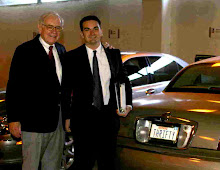Alt-Berkshires
#1 Wesco Financial Corporation
To me this should clearly be first investment discussed as it is actually part of Berkshire Hathaway – it is 80.1% owned by BRK. Charlie Munger’s company is easy to forget about with its much larger and more famous parent. In fact, ask the typical investor who Charlie Munger is and he or she will probably reply “vice-chairman of Berkshire Hathaway,” rather than “CEO of Wesco Financial.” But this greater obscurity might also make Wesco a more attractive alternative, particularly with its share price off 18% of its all-time high earlier this year. This is not to say, however, that there aren’t several very important differences between it and its parent, though.
For one thing, unlike Berkshire which is very well diversified, there are really only two operationally disparate parts to Wesco, the insurance businesses and CORT Business Services. The company also owns Precision Steel, a small steel company, as well as a small real estate company called MS Property. But, in 2006 for example, the insurance businesses and CORT together supplied 98% of Wesco’s earnings.
CORT is a furniture leasing company, which rents to both businesses and individuals. Its primary operations involve supplying businesses with furniture, while, through its relocation services, it supplies individuals working for those businesses. This makes for effective cross-selling.
When it was purchased in 2000 for $326 million it was earning about $30 million per year. It would appear that not much has changed – in 2006 it brought in merely $27 million. Of course times have changed dramatically since 2000 and in retrospect 2000 may have been just the wrong time to make a major acquisition (that is, at an economic peak, before a major terrorist attack and war). Soon after the acquisition income fell off dramatically, even in to negative territory, but in recent years the company has been on the rebound. Mr. Munger is “cautiously optimistic” that things will improve soon but the truth is CORT really has not done much for Wesco to date. The good news is that we can certainly rest assured that the company is being led by competent and trustworthy management, but will that be enough to turn things around? And you could probably make a weak macro prognostication about how with home sales being down more folks will dwell in apartments and need to furnish them temporarily etc, etc, but I really think that is merely speculation.
However, CORT does have one great competitive advantage – the Berkshire name. And the company appears to be attempting to leverage that by advertising that it is “A Berkshire Hathaway Company.” This could be more valuable than you might think. CORT’s core customer base is a collection of Fortune 500 companies, a constituency with which the Berkshire name carries a great deal of credibility.
Wesco’s insurance businesses have done very well lately and this is really Wesco’s flagship anyway. Like other Berkshire insurance subsidiaries, those of Wesco earn both an underwriting and investment profit and have for many years. There are two parts to this business, reinsurance through Wes-FIC and bankers insurance through Kansas Bankers Surety. Wes-FIC is effectively part of Berkshire’s wholly owned subsidiary National Indemnity, which runs its operations and the float generated by the company is forwarded on to Berkshire and hence managed by Mr. Buffett himself. So through Wes-FIC the Wesco shareholder is indeed getting Berkshire Hathaway management even though the profits of Wes-FIC belong to Wesco shareholders.
Reinsurance can get confusing with so many parties involved. For instance, National Indemnity provides reinsurance to XYZ Insurance Corp and then “cedes” part of the reinsurance to Wes-FIC. But through its association with Berkshire, Wes-FIC enjoys outstanding capital strength that many other insurers could only dream of. In 2006, Wesco’s statutory surplus – the amount of reserves held by the company in excess of that required by the various state statutes – was $2.3 billion.
Now let’s consider the company’s balance sheet. At yearend, Wesco had about $2.37 billion in cash and marketable securities, a “problem” not unlike that of Berkshire. Munger bemoans that so much cash and nowhere to put it spells poor prospects for future returns on capital, which may be true. But it also enables the insurance operations to expand (as discussed above) and helps us value the company more confidently. All that cash is worth about $317 per share while Wesco stock trades at $394. So, assuming the insurance operations merely break even on an underwriting basis, we can effectively purchase Wesco’s other operations (CORT) for $77 per share – that puts CORT at 21 times operating profit. This is a huge “if” though. The reinsurance operations share the risk of megacatastrophes – those on the scale of 9/11 or Katrina. A large megacatastrophe could be catastrophic, so to speak, to the company. Of course the underwriting discipline of National Indemnity and Berkshire is very highly regarded so not knowing the specifics of the company’s contracts we ought to rest somewhat easy that Wesco’s exposure is acceptably limited.
The history of Wesco is very interesting and even landed Buffett and Munger in front of an incredulous SEC that couldn’t understand why they were willing to pay a premium to the existing management. Although I won’t get in to it, I encourage anyone curious to read through Roger Lowenstein’s account of the acquisition in Buffett: The Making of an American Capitalist. Without a doubt the best book written about Mr. Buffett to date.
There is much more that can be said about this company but for the sake of brevity I will end it here.
FD: Long Berkshire Hathaway, no other postition in any security mentioned.


0 Comments:
Post a Comment
<< Home